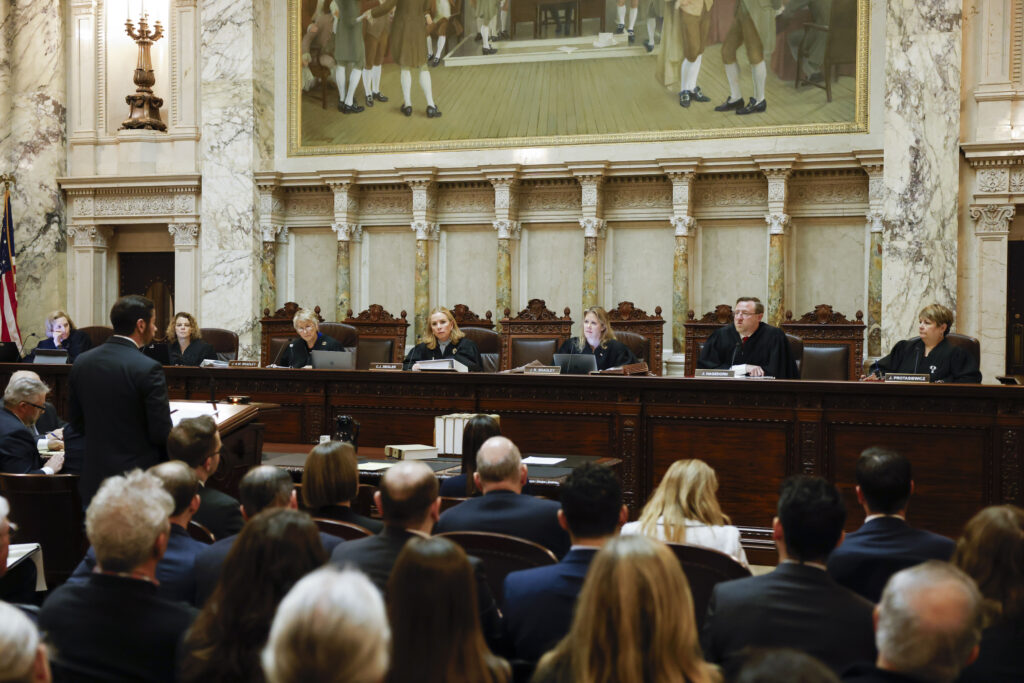Wisconsin Supreme Court Won’t Hear Democrats’ Gerrymandering Challenge

The Wisconsin Supreme Court declined to take a case brought by a group of voters who claimed the state’s congressional map is the result of years of GOP gerrymandering and asked the court to order a new map for the 2026 election.
Despite a near-even partisan split in Wisconsin, six of the state’s eight congressional districts are held by Republicans. That’s “the lowest mathematically possible” representation given how many Democratic voters there are in the state, the group’s filing argued.
The group filed a petition in May arguing Wisconsin’s congressional districting map violated the state constitution by depriving Democrats of equal protection under the law and discriminating against voters based on their political views.
“The map condemns the party that regularly splits or wins the statewide vote to permanent minority status in the state’s congressional delegation,” the filing said.
The Wisconsin Supreme Court is no stranger to the map in question, having selected it themselves. A conservative-majority on the court chose the current version of the map after Gov. Tony Evers (D) vetoed a version passed by the state legislature in 2021.
The voters who filed the legal challenge argue the court failed to pick a fair map, instead allowing years of gerrymandering to continue.
“The Court abdicated this charge by using criteria that guaranteed that the 2011 partisan skew would be perpetuated,” the filing said.
The court provided no reasoning for its decision to decline to take the case.
“Somewhere, out there, 3 democrats are having a bad day,” Rep. Derrick Van Orden (R-Wisc.), whose district could have been made more competitive under a new map, posted on X in response to the news.
The partisan balance of the Wisconsin Supreme Court is no less contested than the state’s congressional map. This year, Justice-elect Susan Crawford (D) won what became the most expensive judicial race in United States history. Crawford hasn’t taken office yet, and will be sworn in Aug. 1. The court currently has a 4-3 liberal majority.
The court also denied a separate challenge filed by Campaign Legal Center on behalf of voters challenging the congressional districts.
The petitioners are represented by the Elias Law Group (ELG). ELG Firm Chair Marc Elias is the founder of Democracy Docket.